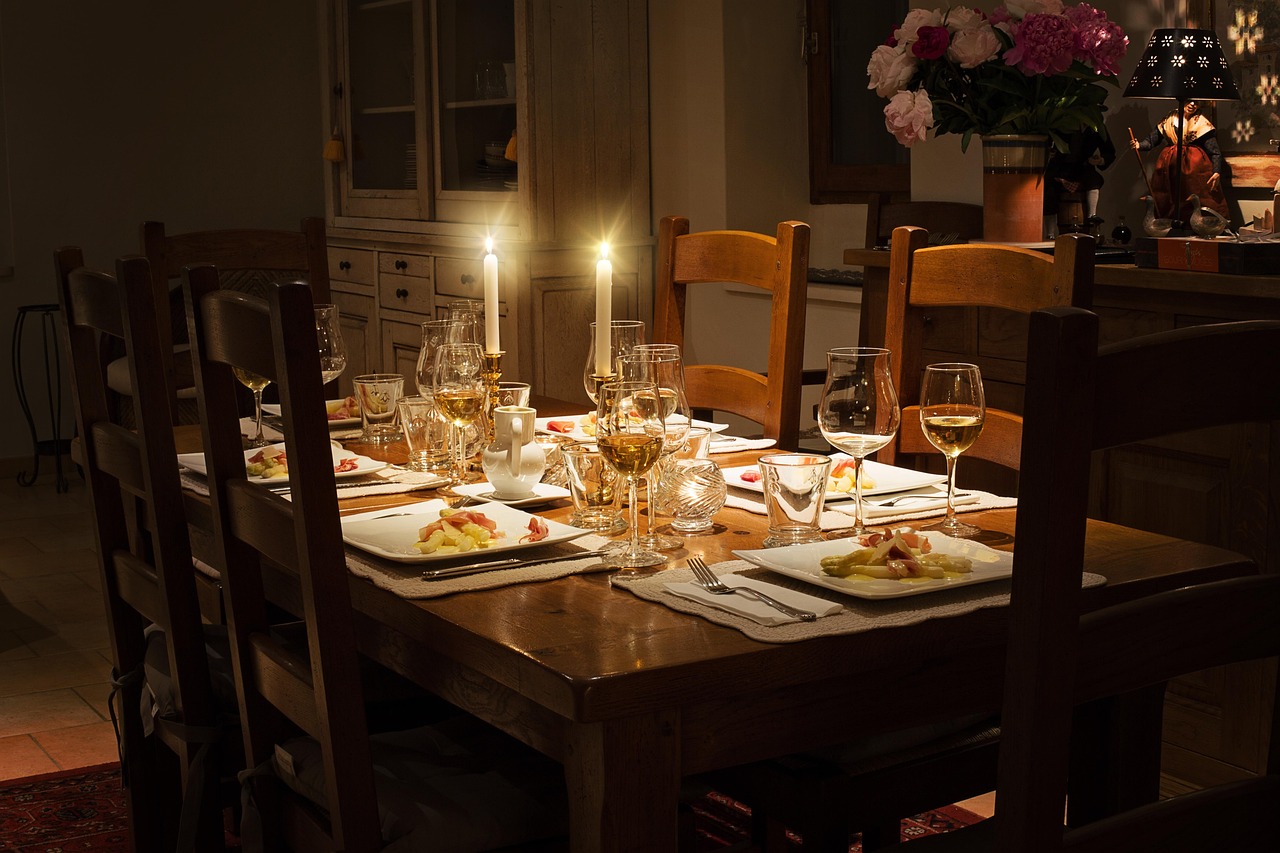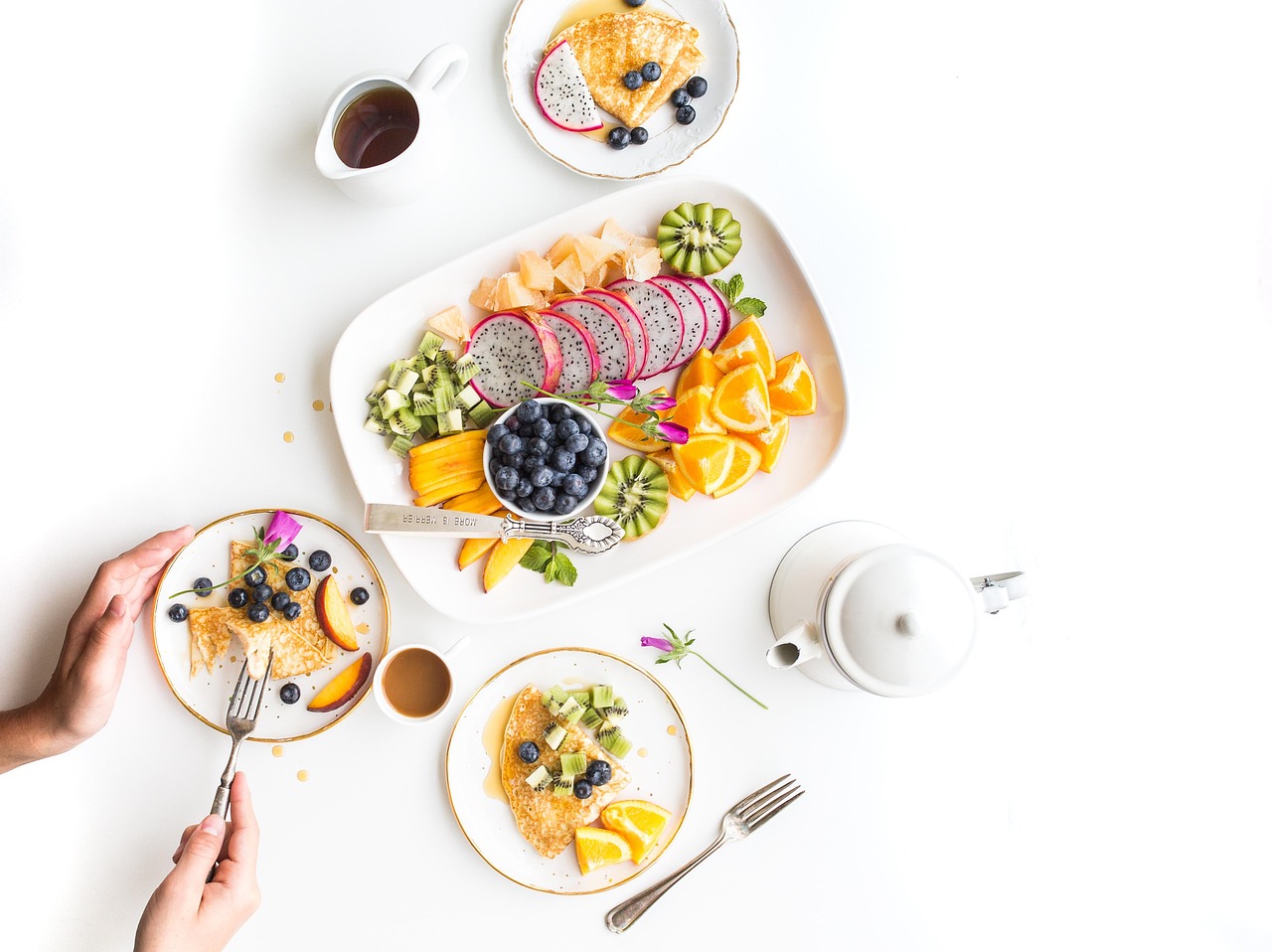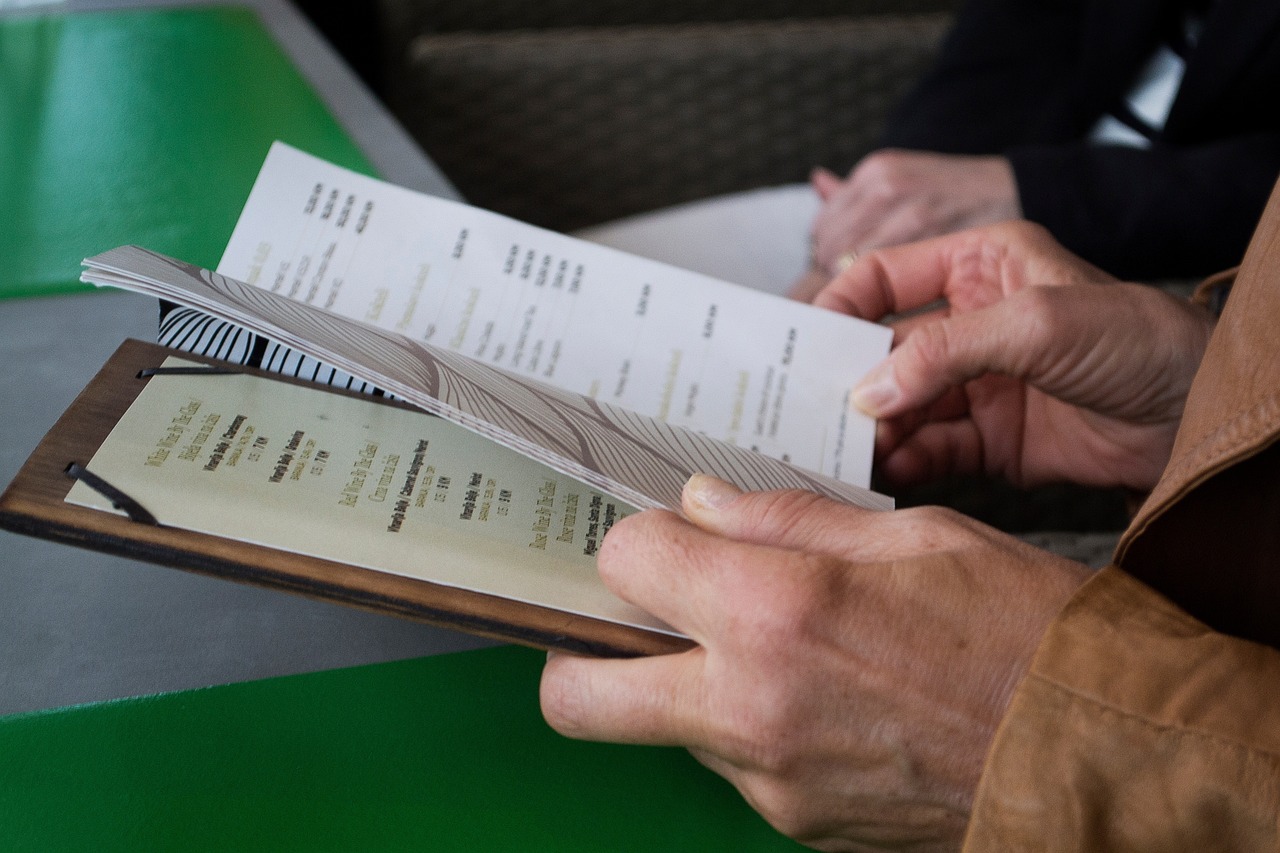When Veganism Meets Meat Lovers: How to Dine Together Despite Different Diets?
"Our first date crisis happened at a barbecue restaurant I had carefully selected." 2RedBeans user Xiao Z shared with the dating consultant that he is a devoted meat lover. "I was enthusiastically recommending the signature dishes when I noticed her looking at the menu with a hint of embarrassment and hesitation. After a moment of pause, she softly told me, 'I only eat vegetarian.' The air instantly froze. Holding the grease-stained menu, it suddenly dawned on me. For her, this wasn’t just a choice about food but a lifestyle I had never understood."
Similar consultations are becoming increasingly common for 2RedBeans’ dating consultants. In today’s world, where individual values are growing more diverse, dietary choices have long transcended mere personal taste, becoming a declaration of life philosophy and values. When vegetarianism enters the romantic world of two people, it acts like a prism, reflecting myriad colors of respect, communication, compromise, and mutual growth within the relationship.
The latest survey from the 2RedBeans platform reveals a profound shift: dietary differences have surged into the top five of the "Ten Life Issues That Must Be Discussed Before Marriage," even surpassing certain financial planning topics in importance. Behind this lies the evolution in the nature of modern intimate relationships:
We seek not only life partners but also allies in spirit and values. The dining table, the smallest public space, has become the first testing ground for the strength of this alliance.

Image provided by irilkolle on Pixabay
1. Behind Vegetarianism: The Identity Narrative of "Who I Am"
To understand a vegetarian partner, the first step is to look beyond the dining table and see the "self" constructed through dietary choices. This is not merely a matter of taste preference but a complete identity narrative.
1.1 Ethical Vegetarians: Narratives Rooted in Moral Identity
Their choices stem from a profound "moral belief system." Social psychologists point out that when an action is closely tied to an individual’s core moral values, it becomes a cornerstone of their identity. For them, rejecting animal products is not about disliking the taste of meat but about refusing to coexist with a system they perceive as rooted in exploitation and suffering. In this context, their plate becomes a showcase for their conscience and values.
2. Environmental Vegetarians: A Narrative Driven by Future Responsibility
Their motivation arises from a rational calculation centered on "responsibility" and a "sustainable future." Data-such as the carbon emissions and water resources required to produce a single steak-take center stage in their narrative. Their choices are a daily practice of their idealism and worldview, reflecting the kind of planet they wish to leave for future generations.
3. Health-Conscious Vegetarians: A Narrative Based on Physical Planning
This approach is more about "body narratives" and "life planning." Through their diet, they seek to take control of their health, prevent diseases, and pursue long-term physical and mental vitality. Their choices are often linked to a knowledge system centered on nutrition and physiology, embodying their personal definition of a fulfilling life.
2RedBeans' relationship consultants remind everyone:
"We often liken such relationships to 'miniature cross-cultural romances.' The root of conflict is rarely the food itself, but rather the underlying unseen values, emotional needs, and visions for a shared future. Non-vegetarians hear 'I don't eat this,' but what vegetarians truly mean to express might be 'I believe in this.' Our role as consultants is to act as both 'cultural translators' and 'relationship architects,' helping both parties decode the language of love in each other's words, building bridges of understanding even in the most ordinary moments of daily dining."
 Image provided by Pexels on Pixabay
Image provided by Pexels on Pixabay
II. The Philosophy at the Dining Table: From "Yours" and "Mine" to "Ours"
Dining out with a vegetarian partner is an art of coexistence. The core philosophy lies in this: we don’t need to become identical, but we must collaboratively create a way of being together that makes each feel respected and seen.
1. Choosing a Restaurant: From Compromise and Sacrifice to Collaborative Exploration
A shift in mindset can completely transform the nature of behavior. View it as an adventure of exploring new culinary frontiers together, rather than a series of negotiations and compromises.
Research by E. Tory Higgins, a psychology professor at New York University, shows that when two people experience and understand something new together, they create a "shared reality." This co-created experience fosters intimacy and connection more profoundly and enduringly than one party merely accommodating the other. The process of discovering a hidden gem of a vegetarian restaurant and evaluating it together is like weaving a unique map of shared memories.
When vegetarianism meets a meat-loving lifestyle, consider creating a "culinary roulette." Instead of simply taking turns choosing, compile a food exploration list featuring his picks for vegetarian-friendly non-vegetarian restaurants and her recommendations for top-tier vegetarian spots. Each date becomes like opening a surprise box, full of anticipation. You could even learn to cook a complex international vegetarian dish together, extending the collaboration from the restaurant to the kitchen.
2. Ordering Skills: Moving Beyond Inquiries to "Empathetic Ordering"
Taking the initiative to inquire about dish ingredients is the starting point of care. But deeper empathy lies in thinking about what the other person is thinking.
When you arrive at the restaurant first, you can scan the menu in advance and proactively ask the server, "Besides the dishes marked as vegetarian, can the chef make special adjustments for a vegetarian? For example, swapping the chicken for grilled tofu?" This small gesture conveys the message: "Your needs are always on my mind, and I am taking the initiative to ensure we have an enjoyable experience."
 Image provided by StockSnap on Pixabay
Image provided by StockSnap on Pixabay
3. The Metaphor of Home: Boundaries, Order, and Love in the Shared Fridge
If a restaurant is the public stage of a relationship, then the fridge and kitchen at home are the intimate sanctuary of a close bond. What is managed here goes far beyond ingredients-it encompasses each other's boundaries, habits, and the blueprint of shared living.
3.1 Fridge Management: Physical Boundaries and Psychological Comfort Zones
For many vegans, animal products in the refrigerator are not just food but also a visual and olfactory "ethical offense." This is not being overly sensitive; psychologists suggest that our physical environment directly impacts our mental state. A mixed refrigerator may make the vegan party feel that their values are not respected in their private space.
2. Upgraded Solutions: Systematic Kitchen Management
- Space Division: Use differently colored or labeled storage containers to establish clear vegan and non-vegan zones.
- Dedicated Tools: Provide exclusive cutting boards, knives, and pots for the vegan to avoid the psychological discomfort of cross-contamination. This is not about creating distance but the highest form of respect-I respect your principles so much that I pay attention to every detail.
- Coordinated Shopping: Utilize shared shopping list apps to clearly list ingredients each person needs, plan purchases together, and turn chores into collaborative household management projects, fostering a sense of teamwork.
A matchmaking consultant from 2RedBeans shared a case like this:
"I once assisted a couple on the verge of breaking up due to a 'refrigerator war.' The man was a meat-eater, while the woman was a strict vegan. The conflict erupted one evening when she discovered he had used a knife that had touched meat to spread peanut butter on her bread. This became the last straw. When I intervened, I didn’t judge who was right or wrong but guided them to see the core issue behind the conflict: she needed absolute respect to feel secure, while he needed to feel that his lifestyle wasn’t entirely dismissed. Together, we designed a 'kitchen coexistence agreement,' which included color-coded utensils and a weekly fusion creative dinner where he would surprise her by preparing dishes using only vegan ingredients. This solution not only resolved their disputes but also taught them how to negotiate boundaries in broader issues like finances and social interactions. Now, they happily refer to themselves as a 'cross-diet family,' and their kitchen has become a symbol of their relationship's resilience."

Image provided by asifhaseeb on Pixabay
IV. The Language of Love: When Steak and Salad Engage in Deep Conversation
All differences in lifestyle ultimately point to communication. The qualitative change in communication occurs when we shift from a "defense/attack" mode to a mode of "curiosity and understanding."
1. Move Beyond Judgment and Delve into Feelings
Avoid using absolute judgments like "You always..." or "You never...". Try adopting the "nonviolent communication" model:
Observation: "I noticed you seemed a bit quiet when we were planning the weekend barbecue." (State the facts, not judgments)
Feelings: "I feel a bit overwhelmed, unsure how to enjoy time with friends while making sure you feel comfortable too." (Express your vulnerability, not accusations)
Needs: "Because I truly value the time we spend together and also want you to have a good time." (Connect to your deeper needs)
Request: "Could we brainstorm together to find a solution that works for both of us? For example, maybe I can bring a portable grill just for vegetarian options?"
2. Create Shared Meaning and Rituals
You can establish a Vegetarian Adventure Day, where you explore the vegetarian culture of a country or region together weekly or monthly. This is not just a dietary adjustment but a process of mutual learning and growth, infusing the relationship with a continuous stream of freshness. It cleverly transforms a potential point of conflict (you can't eat meat) into a growth opportunity for the relationship (we discovered the world together).

Image provided by TheVirtualDenise on Pixabay
Conclusion: Differences Are Not Barriers to Love, but Amplifiers of It
Ultimately, the difference between vegetarian and non-vegetarian lifestyles is like any other difference in a relationship-introversion versus extroversion, rationality versus emotion, a love for adventure versus a preference for stability.
It is not the difference itself that is the problem, but how we perceive and handle it.
This little red bean firmly believes that a truly mature and resilient relationship is not about finding a puzzle piece that fits perfectly from the start. Instead, it is about two independent, complete individuals, each with their unique shapes, colors, and textures, voluntarily and creatively piecing together a larger, more beautiful, and uniquely shared landscape through continuous dialogue, refinement, and adjustment.
When you can genuinely feel happy for each other enjoying their favorite foods at the dining table, and when your refrigerator and kitchen become a model of respect and cooperation, your relationship has already passed one of the toughest stress tests. Because you have proven that the power of love is strong enough to transform differences at the table from potential points of division into the strongest bond that connects you.
Ultimately, the highest form of love is not about sharing the same appetite, but about appreciating and protecting each other's unique inner world-whether that world includes meat or not.
Cover Photo by congerdesign on Pixabay.
Original article in simplified Chinese. Translated by AI.